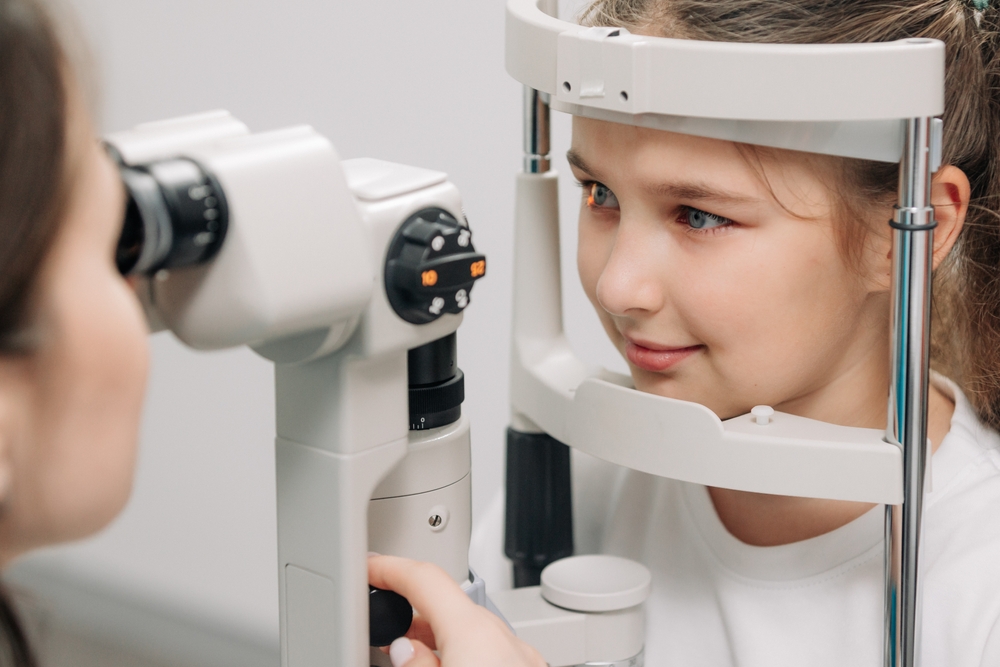
As a parent, ensuring your child’s health is likely one of your top priorities. While many parents schedule regular check-ups for general health and dental care, eye health can sometimes be overlooked. However, early detection of myopia (nearsightedness) is critical for maintaining your child’s long-term vision and overall well-being.
What Is Myopia?
Myopia, or nearsightedness, is a common vision condition where distant objects appear blurry, while close objects remain clear. It occurs when the eyeball grows too long or the cornea has too much curvature, causing light to focus in front of the retina instead of directly on it.
Why Early Detection Is Essential
Detecting myopia early is essential because myopia often progresses as a child grows. If left unmanaged, high myopia can increase the risk of serious eye conditions in adulthood, including:
• Retinal Detachment: A severe condition that can lead to vision loss.
• Glaucoma: A group of eye diseases that damage the optic nerve.
• Cataracts: Clouding of the lens of the eye, which can impair vision.
• Myopic Maculopathy: A degenerative condition affecting the retina.
Signs Your Child May Have Myopia
Children may not always express that they’re having trouble seeing clearly. Keep an eye out for the following signs:
• Squinting or frequent blinking
• Complaints of headaches or eye strain
• Holding books or devices very close to their face
• Difficulty seeing the board in school
• Avoiding activities that require clear distance vision, such as sports
Preventing Future Vision Problems Through Myopia Management
Early detection allows for effective intervention through myopia management. This proactive approach involves slowing the progression of myopia to reduce the risk of future complications.
Some common myopia management strategies include:
• Orthokeratology (Ortho-K): Special overnight contact lenses that gently reshape the cornea.
• Atropine Eye Drops: Low-dose medication to slow myopia progression.
• Multifocal Contact Lenses: Specially designed lenses to improve focus and reduce progression.
• Lifestyle Adjustments: Encouraging outdoor play and reducing screen time to limit eye strain.
When Should Children Have Their First Eye Exam?
The American Optometric Association recommends a child’s first comprehensive eye exam by six months of age, followed by another at age three, and before starting school, with annual eye exams thereafter. These routine exams are crucial for detecting vision issues early and implementing effective solutions.
Partnering with Brianna Herring O.D. for Your Child’s Vision Health
Early detection of myopia is a vital step in protecting your child’s vision and overall eye health. By identifying and addressing myopia early, you can help prevent future vision problems and ensure your child has the tools they need to succeed in school, sports, and everyday life. Myopia management offers effective strategies to slow progression and reduce the risk of serious eye conditions later in life.
Schedule your child’s eye exam with Brianna Herring O.D. for personalized care and guidance to help your child enjoy a lifetime of clear, healthy vision. Visit our office in Deerfield Beach or Plantation, Florida. Please call (786) 891-2020 or (954) 472-2676 to book an appointment today.




